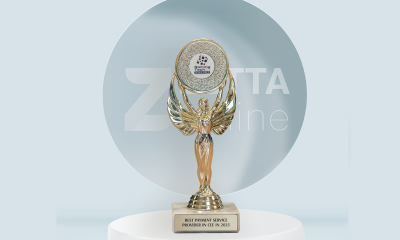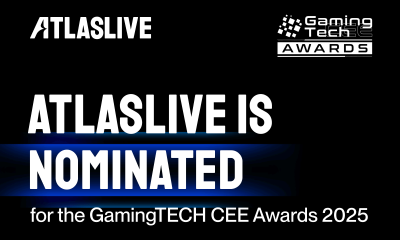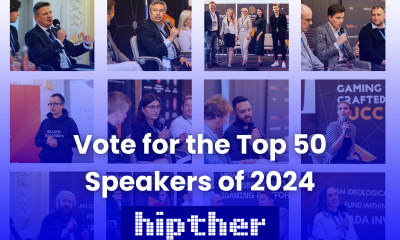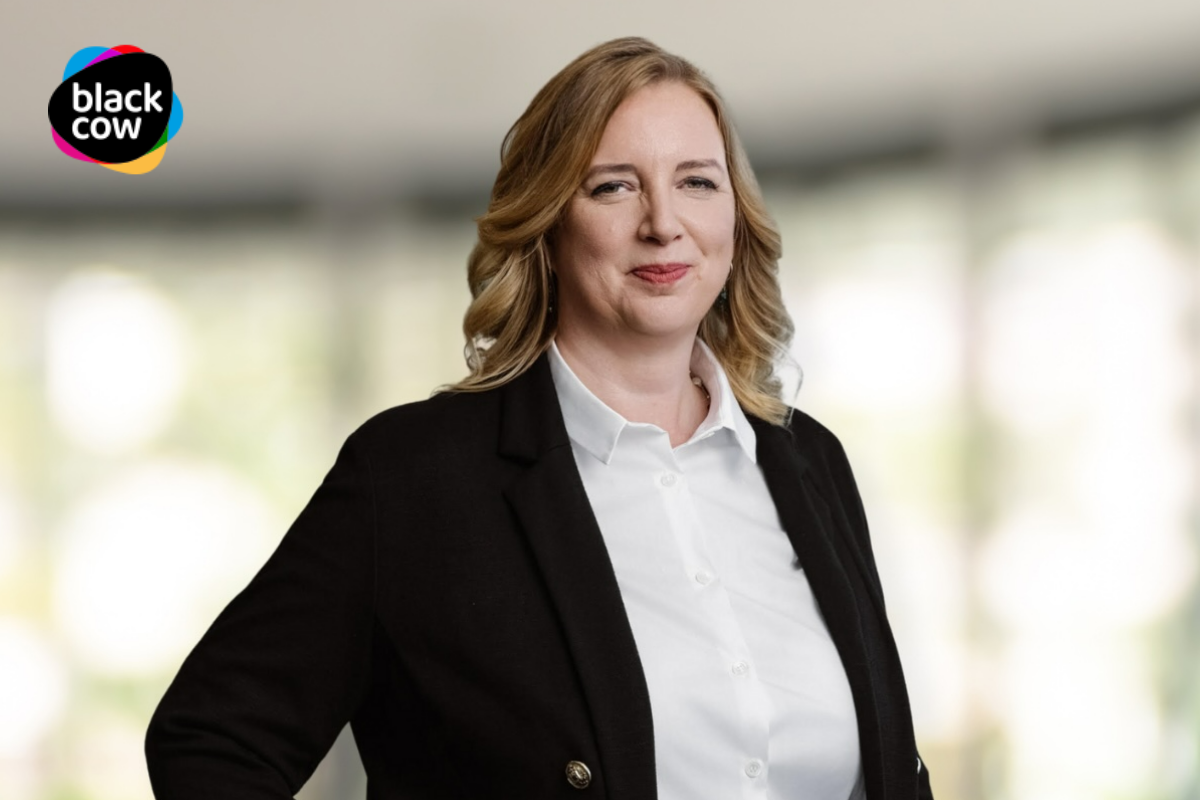Conferences in Europe
Viktoria Soltesz: the Online Payments Pro Teaching Us How Money Moves

Viktoria Soltesz is a Payment Consultant, BusinessWoman of the Year 2023, and now an Author, with her book “Moving Money – How Banks Think”, being published on all Amazon stores since early January 2024.
Viktoria is the founder and CEO of PSP Angels Group – an independent payment consulting firm with a vast understanding of the payment market, and an extended network of banks and financial providers, offering personalized payment consulting services, helping clients operate their business globally.
In her book, “Moving Money – How Banks Think”, she walks the reader through the history of transactions and financial systems, offers a detailed explanation of basic banking principles, and delves deep into payment solutions, requirements, risk policies, and compliance limitations associated with online payments.
Viktoria, congratulations on the publication of your book, and thank you for joining us to share more information about it with our readers! In the Foreword of the book, you introduce yourself, detailing your professional background and your fascinating journey into the world of online payments. Can you please give us a short introduction here as well?
My adventure began in England, where I worked for a well-known accounting software company, witnessing firsthand the globalization of financial practices. My move to Cyprus coincided with the adoption of the Euro, offering me unique insights into the island’s financial dynamics. In Cyprus, I started working in accounting and finance, offering tax planning and managing complex global transactions. When I faced various payment and banking compliance challenges, I determined to understand the payment industry and founded PSP Angels, an independent payment consultancy. My goal with the book is to simplify the payment and banking industry, educate businesses about the importance of compliance, and foster understanding between clients and payment service providers.
Blending personal anecdotes, real time stories and my professional experiences, I describe the challenges businesses face in navigating the evolving landscape of online payments. The book aspires to contribute to making online payments more efficient, secure, and understandable, while encouraging open discussions within the industry.
In the book, you speak of “Financial Literacy” and “Payments Literacy”, and how this fundamental knowledge is not taught in schools. Can you give us a brief summary of the key points that businesses should be aware of and take into consideration when setting up their financial operations? What are the basics of “Financial Literacy” and “Payments Literacy”?
Finance is the language of business and understanding the basics of accounting, taxes, and financial expressions is a must for every business. Financial Literacy is the knowledge to manage money effectively, and plan for future financial goals. Knowing the financial terms and concepts helps businesses to make informed decisions regarding savings, investments, and debt. On the other hand, Payments Literacy is often neglected and misunderstood. The concept of “how money moves” globally is not taught in schools, however today all businesses need to understand how to navigate various payment methods, systems, and processes. Payments Literacy encompasses a range of topics related to financial transactions, including online payments, electronic transfers, and traditional banking methods. It is essential for businesses to understand cybersecurity, the various compliance and regulatory environments, plan banking and payments ahead and source and select the relevant providers for these transactions. All international companies need to be aware of diverse payment methods to align with local customer preferences. Payments Literacy is complementing Financial Literacy and they are both vital for effective business operations.
As you describe your journey into payments and how the problems you encountered lead to understanding, you share instances of complicated structures, early financial compliance attempts and rigid bank processes around the mid ‘00s to 2010s. How has the landscape evolved by now? Would you say that compliance has found its footing, have the banking and payments processes become more clear and friendly to businesses and consumers alike?
I believe that challenges in payment and banking have become more complex and will continue to evolve. With the increasing shift of businesses to online platforms and their expansion into international markets, complexities in payment and banking processes are on the rise for everyone involved. Maintaining transparency, ensuring compliance, and managing the risks associated with uncertain territories and service providers has become a challenging task. The emergence of new technologies, such as crypto payments, and the variety of currency and asset management options add an extra layer of complexity to these challenges. Not to mention the various cybersecurity and data protection requirements, too. Businesses today not only need to be experts in the traditional financial structures but also have to adapt to the dynamic landscape of digital payments, banking, and payment methods. Successfully addressing these multifaceted challenges requires heightened awareness, strategic planning, and a commitment to staying informed about evolving technologies and about the ever-changing regulatory landscapes.
How has Fintech played a pivotal role in shaping the evolution of the payment market, and what key contributions or innovations has it introduced over the course of its history?
Fintech became a powerful force reshaping the traditional banking and payment market. Innovations in such a conventional industry was much needed and have significantly improve the efficiency and accessibility of financial transactions. One noteworthy contribution is the introduction of mobile payments, enabling individuals and businesses to seamlessly conduct transactions through their smartphones. This shift to mobile-centric solutions not only simplifies the payment process but also promotes financial inclusivity, reaching individuals who may not have had access to traditional banking services. This has opened up new markets for global trade.
Fintech also brought us the digital wallets and peer-to-peer payment platforms, facilitating fast and secure fund transfers. These innovations have transformed consumer expectations, placing emphasis on speed, convenience, and heightened security in financial transactions. Fintech has driven progress in data analytics, enabling more sophisticated risk assessment and fraud prevention measures. The integration of Application Programming Interfaces (APIs) has played a pivotal role in fostering collaboration between financial institutions and Fintech entities. This interconnected ecosystem has resulted in the creation of diverse financial solutions, ranging from automated budgeting tools to advanced investment platforms.
Speaking of Fintech, in practical terms, how are Blockchain and Cryptocurrencies currently being utilized in everyday applications within the payments system, and what impact are they having on traditional payment methods?
Blockchain and cryptocurrencies, although holding significant promise, currently face challenges in practical application within everyday payment systems. Unfortunately, these technologies have become vulnerable to misuse and scams due to the absence of regulation, undermining their positive potential. Despite their increasing adoption, the tarnished reputation blocks widespread acceptance. In every country, authorities worry that unmonitored transactions may facilitate tax evasion or criminal activities. Although efforts are underway to implement regulations and bring order to the landscape, the current situation remains complex, still providing opportunities for creative individuals to exploit gray areas. The potential benefits of blockchain and cryptocurrencies, such as enhanced security and transparency, are unfortunately still overshadowed by instances of misuse. Achieving widespread adoption necessitates not only technological advancements but also a coordinated effort to address regulatory ambiguities. It is crucial to educate users about the legitimate and responsible use of these innovations. Until a balanced and well-regulated approach is established, the transformative potential of blockchain and cryptocurrencies may be hindered by their association with illicit activities. This underscores the critical need for a comprehensive and carefully regulated integration into mainstream payment systems.
Readers will have the opportunity to meet you and get their book copies signed at the Prague Gaming & TECH Summit, on 26-27 March 2024; you will be participating as an expert speaker in two panels: “Navigating the Future: Integrating iGaming, AI, Fintech, and Advertising with Compliance and Data Privacy”, and “Capital Navigation: Expert Strategies for Securing Investment”. Can you give us a sneak-peek of the key points you will be discussing?
In the upcoming discussion, I’ll be sharing practical tips to help the audience navigate common challenges with banking and payment pproviders and their products, digital assets, and other payment methods, mainly present for the iGaming sector. My focus is on providing valuable insights into more cost-effective and secure banking and payment providers. Unfortunately, the iGaming sector is still facing serious payment and banking challenges, and complexities of global fund transfers. I’ll offer advice on executing these transactions in a safer and more economical manner. The aim is to deliver substantial content value to the audience by offering real-life tips and conducting workshops that empower individuals to navigate the intricacies of financial transactions with confidence.
In ‘Moving Money – How Banks Think, you mention that your goal is to introduce a new approach in both payment planning and execution. What are the key insights that businesspeople and everyday individuals can gain from your book, and in what areas can they seek your professional consultation?
In the book, I’ve distilled years of experience into a practical method outlined in the Strategy section, serving as a step-by-step guide to minimize risk and optimize costs for any online business. My consultancy work aims to bridge knowledge gaps by providing a detailed explanation of basic banking principles and fundamental economic concepts. I assist businesses by offering insights on staying updated about emerging payment and banking trends. My work helps clarifying various aspects and benefits of online payment solutions, positioning for innovation, seizing growth opportunities, exploring global payment methods and their impact on customer satisfaction, acquisition, and retention. I also provide guidance on understanding various regulations and compliance for navigating legal landscapes, ensuring data security and protecting consumer rights. My 20+ years payment and financial experience helps businesses creating effective payment plans for their complex online payment and banking flows. This comprehensive approach is designed to empower businesses with the necessary knowledge and strategic insights to successfully navigate the intricate world of payments.
Thank you for your time and this riveting interview, Viktoria! We look forward to seeing you at the Prague Gaming & TECH Summit this March, learn more about the exciting updates in the ever-evolving world of payments, and get our books signed!
-
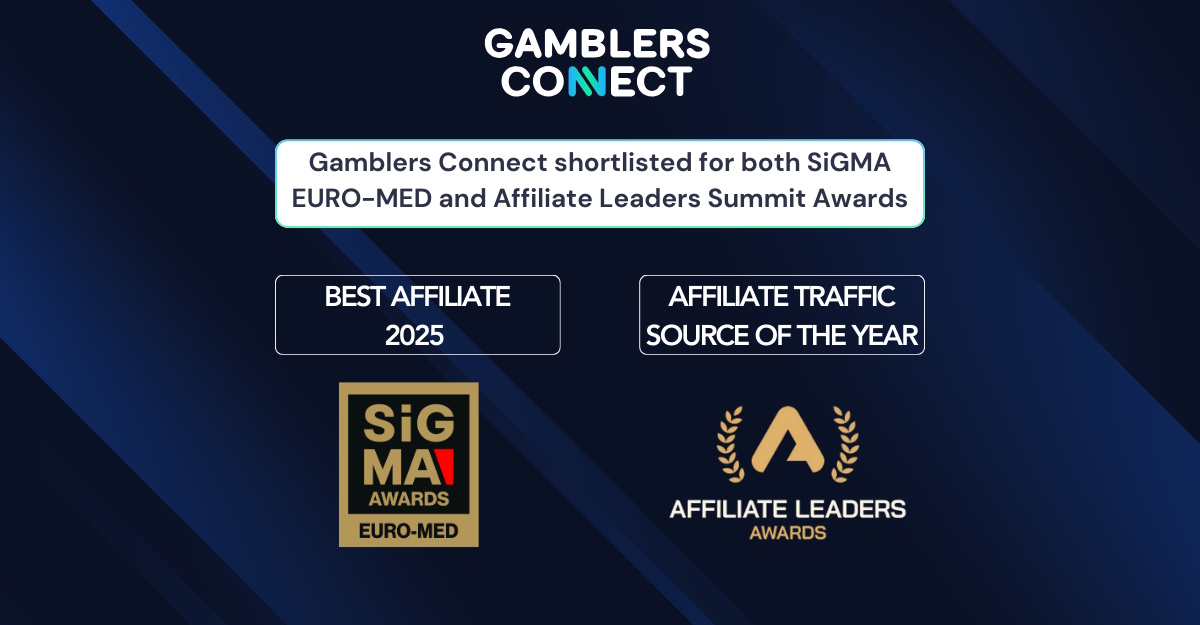
 Latest News7 days ago
Latest News7 days agoGamblers Connect Shortlisted for Prestigious Affiliate Awards at SiGMA EURO-MED and SBC Summit 2025
-

 Africa4 days ago
Africa4 days agoQTech Games wins Best Innovation of the Year at the 2025 SBWA+ Eventus Awards
-
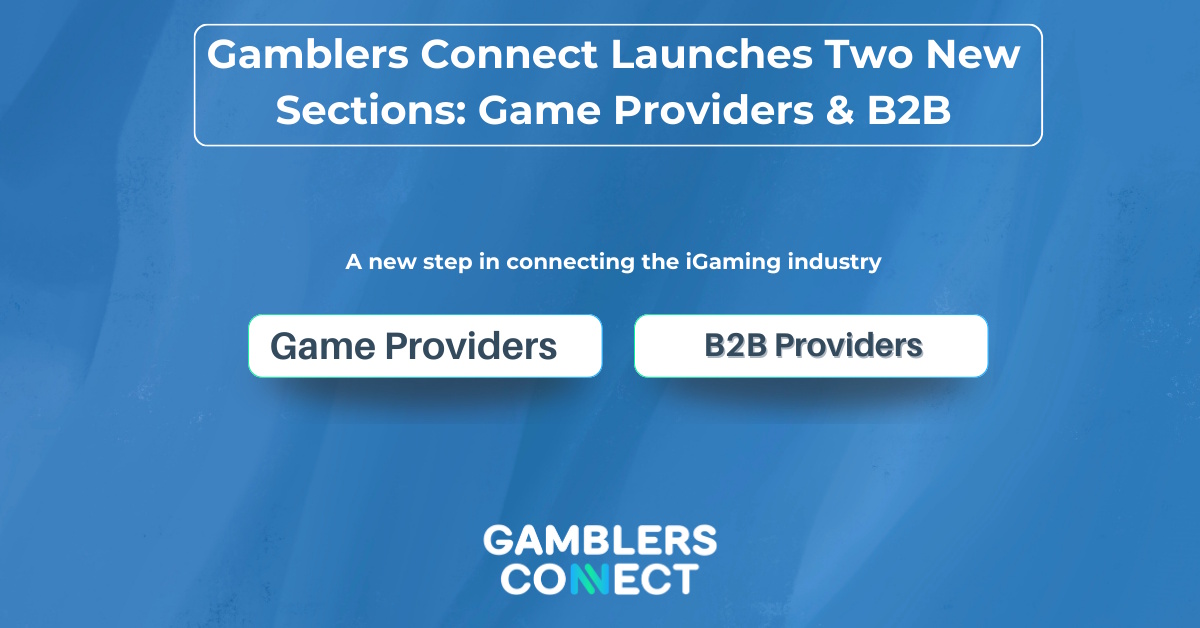
 Latest News7 days ago
Latest News7 days agoGamblers Connect Launches Dedicated ‘Game Providers’ and ‘B2B Providers’ Sections to Strengthen Industry Partnerships and Visibility
-

 Latest News4 days ago
Latest News4 days agoVindral appoints Henrik Fagerlund as Chairman of the Board
-

 Asia4 days ago
Asia4 days agoNODWIN Gaming and JioStar Unveil OnePlus Android BGMS Season 4
-

 Latest News4 days ago
Latest News4 days agoCalema to Perform at Legends Charity Game in Lisbon
-
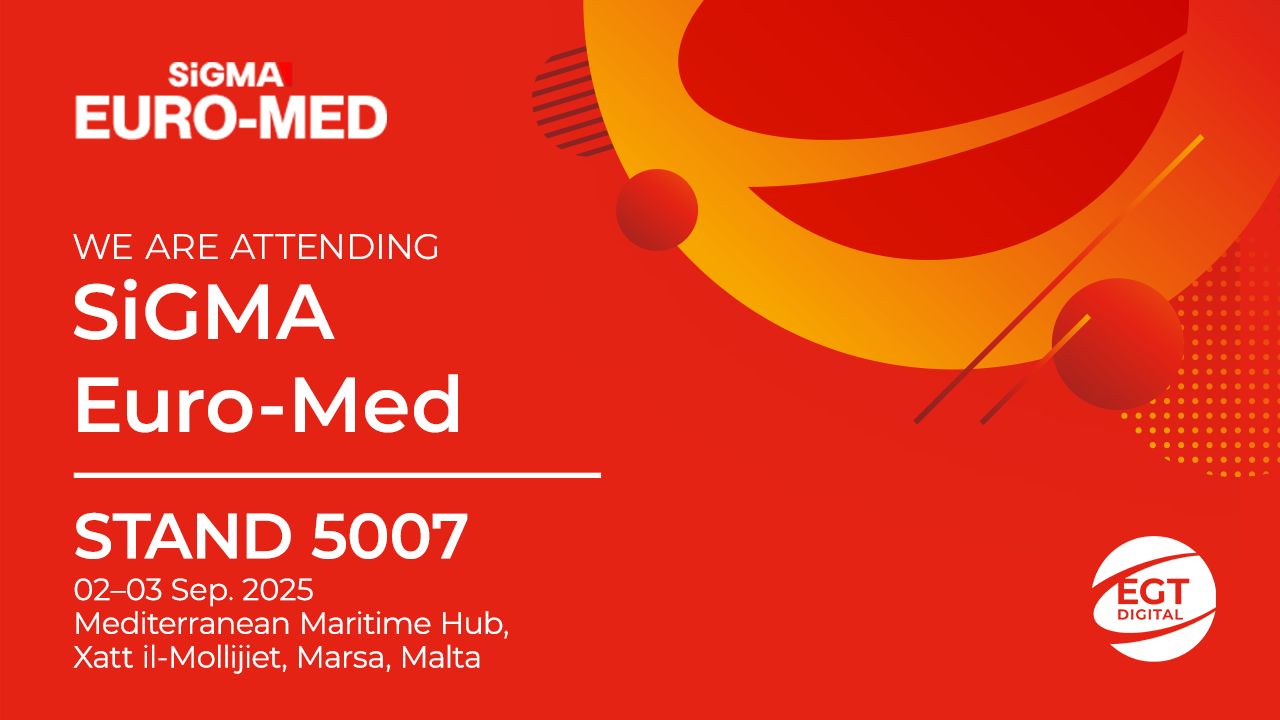
 Conferences in Europe4 days ago
Conferences in Europe4 days agoEGT Digital and EGT to rock the show at SiGMA Euro-Med 2025
-

 Latest News4 days ago
Latest News4 days agoPush Gaming redefines its portfolio, unveiling new game categories and sub-brand for extended player reach






